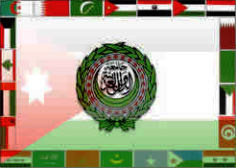 The Arab League voted Saturday to suspend Syria and warned that the country could face sanctions if it did not end its crackdown against anti-government protesters.
The Arab League voted Saturday to suspend Syria and warned that the country could face sanctions if it did not end its crackdown against anti-government protesters.
The decision was a symbolic blow to a nation that prides itself on being a powerhouse of Arab nationalism.
Sheik Hamad bin Jassim al-Thani, the Qatari foreign minister, said 18 countries agreed to the suspension, which would take effect on Wednesday. Syria, Lebanon and Yemen voted against it, and Iraq abstained. The Arab League will also introduce political and economic sanctions against Syria, he said.
Violence has continued unabated since Syria agreed on Nov. 2 to an Arab-brokered peace deal that called for the Syria to halt violence against protesters, pull tanks and armored vehicles out of cities, release political prisoners and allow journalists and rights groups into the country.
“Syria is a dear country for all of us and it pains us to make this decision,” the Qatari foreign minister said. “We hope there will be a brave move from Syria to stop the violence and begin a real dialogue toward real reform.”
The decision comes as November is shaping up to be the bloodiest month yet in Syria’s 8-month-old uprising. More than 250 Syrian civilians have been killed in the past 11 days as the regime besieges the rebellious city of Homs.
The United Nations estimates that some 3,500 people have been killed in the crackdown since the uprising began eight months ago.
In a nod to concerns that the decision could pave the way to international intervention as occurred in Libya, the Qatari foreign minister stressed that “no one is talking about a no-fly zone, people are trying to mix up the cases. None of us is talking about this kind of decision.”
Dozens of protesters outside had rallied for the decision, carrying placards reading “Freedom for the Syrian people” and “Arab leaders are garbage” as they chanted for the removal of President Bashar Assad of Syria. They were joined by demonstrators from Yemen, protesting violent government crackdowns in their country.
The bloodshed has spiked dramatically in recent weeks amid signs that more protesters are taking up arms to protect themselves, changing the face of what has been a largely peaceful movement. Many fear the change plays directly into the hands of the regime by giving the military a pretext to crack down with increasing force.
Although the crackdown has led to broad international isolation, Assad appears to have a firm grip on power.
Mr. Assad, and his father who ruled Syria before him, stacked key security and military posts with members of their minority Alawite sect over the last 40 years, ensuring loyalty by melding the fate of the army and the regime. As a result, the army leadership will likely protect the regime at all costs, for fear it will be persecuted if the country’s Sunni majority gains the upper hand. Most of the army defectors so far appear to be lower-level Sunni conscripts.
Syria blames the bloodshed on “armed gangs” and extremists acting out a foreign agenda to destabilize the regime.
NYT

Leave a Reply
You must be logged in to post a comment.